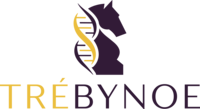When it comes to saving money, there are many ways to invest it, like choosing between riding a bike or taking the bus. Some people pick stocks or funds that will do better than others, like betting on which horse will win a race. But does this really work better than just going with the flow of the market?
Active vs. Passive Investing
Think of active investing as trying to pick the winning horse. It’s hard, and only a few succeed. Vanguard’s study shows that over 15 years, only about 35% of these stock pickers beat the market. That’s not a lot, and this number only includes the number of funds that survived the 15 years, with thousands of funds being closed for various reasons, including performance. That percentage is lower.
On the other side, passive investing is like betting that horses, in general, will run fast. You don’t worry about picking the winner. Reports, like the SPIVA, tell us that this way often works out better because most stock pickers don’t beat the market, especially as time goes on. https://www.spglobal.com/spdji/en/research-insights/spiva/#canada
What about picking funds that have managed to outperform the market?
We have data to answer that question. It seems like the better option would be to pick funds that haven’t performed well!
“While slightly more than expected actively managed domestic equity funds maintained their top-quartile ranking for a few 12-month periods, persistence of ranking soon fell below what would be expected by random chance. Over five years, none were able to maintain their top-quartile ranking (see Report 2).”
https://www.spglobal.com/spdji/en/documents/spiva/persistence-scorecard-canada-year-end-2022.pdf
What the Academics Say
There’s this idea called the Capital Asset Pricing Model (CAPM) from William Sharpe, a Nobel prize winner. He said that if you invest in stocks or a bunch of them (like a fund), you should get paid more for taking more risk. But, if your stock or fund is less “risky” than the market, expect a lower return.
Then Eugene Fama came up with the Efficient Market Hypothesis (EMH). He said that stock prices have all the known information baked into them, making it super hard to beat the market consistently by picking stocks.
The Efficient Market Hypothesis is false, but the data shows we should invest as though it is true.
Larry Swedro gave this example. https://www.evidenceinvestor.com/the-twenty-dollar-bill/
“A financial economist, and passionate defender of the EMH, was walking down the street with a friend. The friend stops and says, “Look, there is a $20 bill on the ground.”
The economist turns and says, “Boy, this must be our lucky day! Better pick that up quick because the market is so efficient it won’t be there for long. Finding a $20 bill lying around happens so infrequently that it would be foolish to spend our time searching for more of them. Certainly, after assigning a value to the time spent in the effort, an ‘investment’ in trying to find money lying on the street just waiting to be picked up would be a poor one. I am certainly not aware of anyone who has achieved their wealth by ‘mining’ beaches with metal detectors.”
When he had finished, they both looked down and the $20 bill was gone!”
Why Not Just Follow the Market?
Given all this, why not just invest in a way that tries to match the market? This is how you should invest. Instead of trying to beat the market and often failing, why not ride along with it at a lower cost?
A Little More on Risk
Economists Fama and Ken French, added a bit to our understanding. They proved that besides just the market risk, other things like the size of a company or how it’s priced can affect returns. This doesn’t mean trying to beat the market, but understanding these risks can help investors make smarter choices. This is referred to as the 5-factor Model.
Bottom Line: Keeping It Simple
All this fancy talk boils down to a simple idea: It’s tough to beat the market, so why not join it? Investing in a broad, diverse set of stocks through index funds is like betting on all the horses. You might not win big, but you’re less likely to lose. I refer to it as gong for second base. You probably won’t hit a home run, but you are also not taking the risk of striking out with the big swing you need to achieve that home run.
If you haven’t seen the movie Money Ball, it is a great watch that demonstrates the power of data-based decisions.



